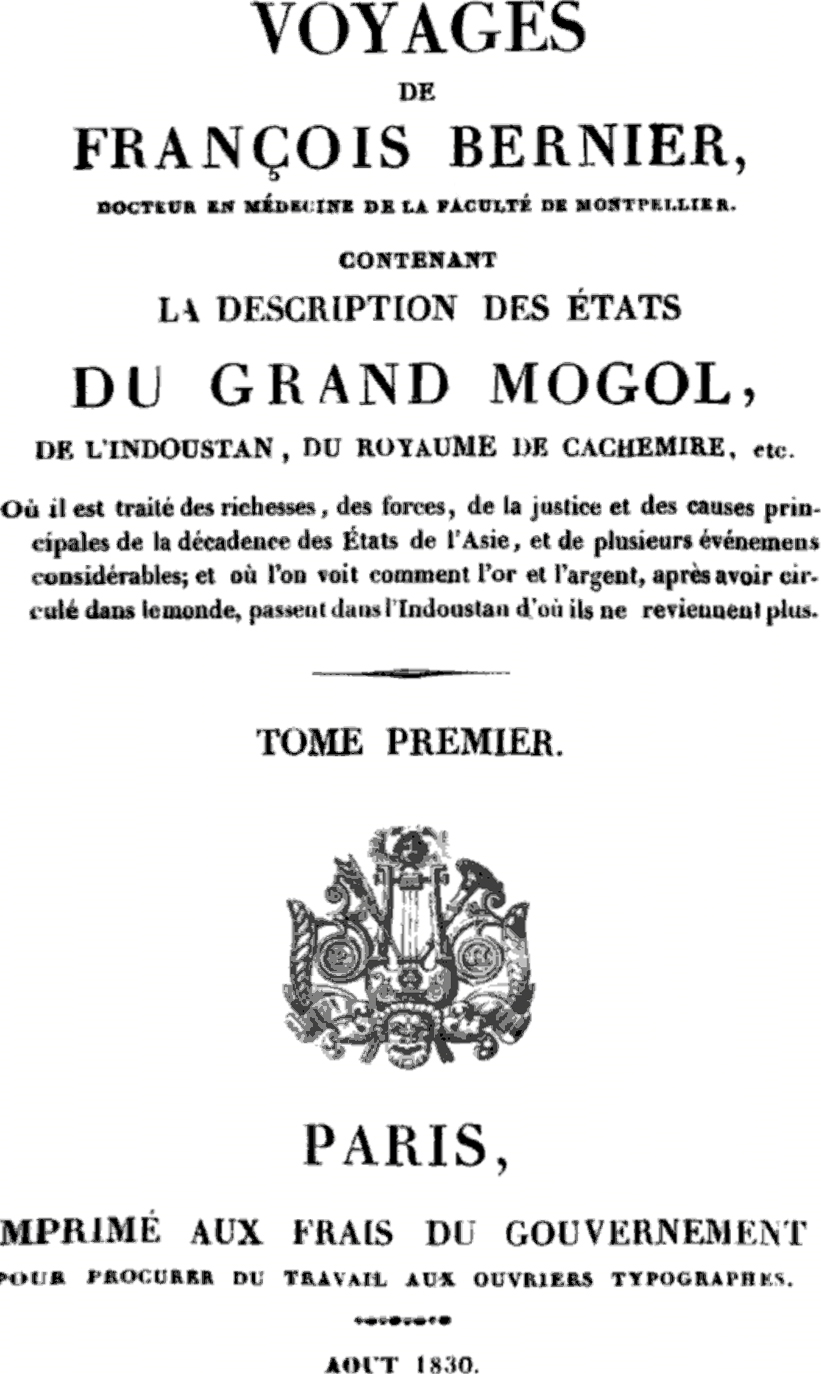Quoted from Lal, K. S. (1992). The legacy of Muslim rule in India. New Delhi: Aditya Prakashan. Also quoted in part in in Islam in India and Pakistan - A Religious History by Dr.Y P Singh, British India by R.W. Frazer
Travels in the Mogul Empire (1656-1668)
François Bernier: Citáty anglicky
François Bernier, quoted from Lal, K. S. (1992). The legacy of Muslim rule in India. New Delhi: Aditya Prakashan. Chapter 4
Travels in the Mogul Empire (1656-1668)
Quoted from Lal, K. S. (1992). The legacy of Muslim rule in India. New Delhi: Aditya Prakashan.
Travels in the Mogul Empire (1656-1668)
Quoted from Lal, K. S. (1992). The legacy of Muslim rule in India. New Delhi: Aditya Prakashan.
Travels in the Mogul Empire (1656-1668)
Quoted from Lal, K. S. (1990). Indian muslims: Who are they.
Travels in the Mogul Empire (1656-1668)
Quoted from Lal, K. S. (1992). The legacy of Muslim rule in India. New Delhi: Aditya Prakashan. Chapter 5
Travels in the Mogul Empire (1656-1668)
Quoted from Lal, K. S. (1992). The legacy of Muslim rule in India. New Delhi: Aditya Prakashan. Chapter 4
Travels in the Mogul Empire (1656-1668)
Quoted from Lal, K. S. (1992). The legacy of Muslim rule in India. New Delhi: Aditya Prakashan.
Travels in the Mogul Empire (1656-1668)
Lal, K. S. (1992). The legacy of Muslim rule in India. New Delhi: Aditya Prakashan. Chapter 5
Travels in the Mogul Empire (1656-1668)
François Bernier, quoted from Lal, K. S. (1999). Theory and practice of Muslim state in India. New Delhi: Aditya Prakashan. Chapter 4
Travels in the Mogul Empire (1656-1668)
François Bernier, quoted from Lal, K. S. (1992). The legacy of Muslim rule in India. New Delhi: Aditya Prakashan. Chapter 7
Travels in the Mogul Empire (1656-1668)
Quoted from Lal, K. S. (1992). The legacy of Muslim rule in India. New Delhi: Aditya Prakashan. Chapter 1
Travels in the Mogul Empire (1656-1668)
“There was no middle state. A man must be of the highest rank or live miserably.”
Quoted from Lal, K. S. (1992). The legacy of Muslim rule in India. New Delhi: Aditya Prakashan. Chapter 6
Travels in the Mogul Empire (1656-1668)
Quoted from Lal, K. S. (1992). The legacy of Muslim rule in India. New Delhi: Aditya Prakashan.
Travels in the Mogul Empire (1656-1668)
